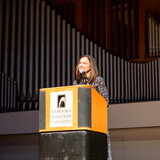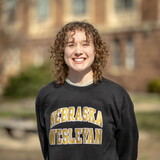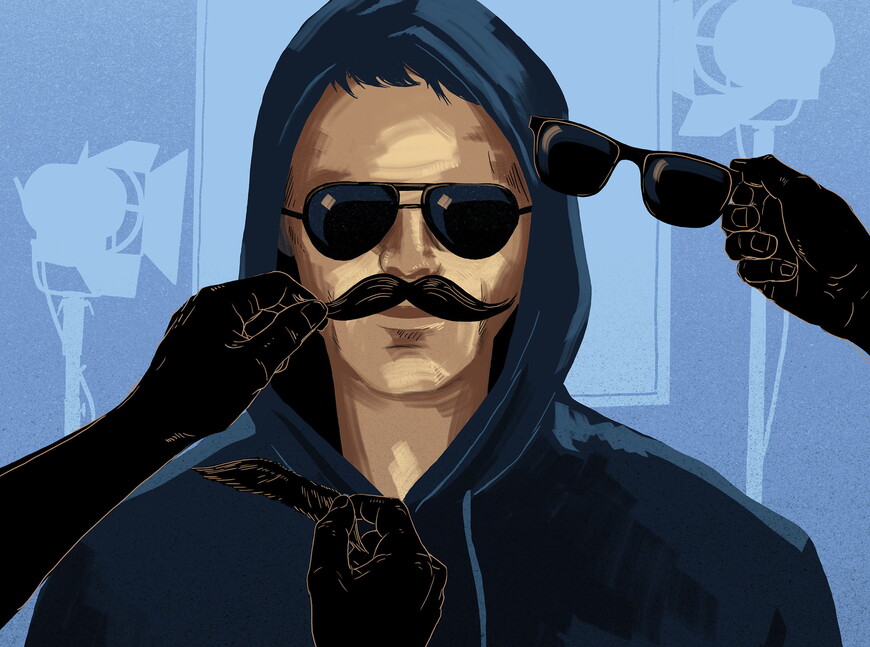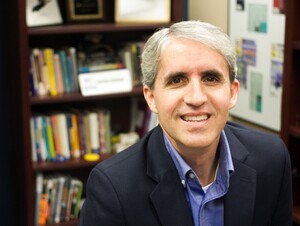D. Max Noel (’64) is professionally acquainted with deceit.
| Max Noel will present a virtual lecture on his work with the FBI on Tuesday, October 26 at 7 p.m. in Olin B, located between Olin Hall and Smith-Curtis. |
The retired FBI agent has been lied to by countless criminals weaving yarns long and winding enough to crisscross continents. Noel has likewise spun a few untruths of his own to manipulate hostage takers, terrorists and crooks in a decorated investigative career that spanned decades.
So whenever Noel watches dramatic reenactments of his most famous case, he’s not exactly shocked if the plot veers from the truth. “I know screenwriters have a job to do and not much space to work with,” he said. “They’re not going to get everything just right.”
Still, Noel’s patience has limits. And the 2017 Discovery Channel series, “Manhunt: Unabomber,” was one of the portrayals that stretched his tolerance.
“There’s only one FBI agent who ever interviewed Ted Kaczynski, along with Postal Inspector Paul Wilhelmus,” he said. “And that’s me.”
The truth often requires a critical eye
That straightforward reality wasn’t reflected in the true-crime series, “Manhunt: Unabomber.” The Discovery series was generally a hit with audiences, and a miss with the people closest to the case. (NPR’s TV critic, David Bianculli, called it “an all-out winner”; and Ted Kaczynski called the plot descriptions he read from his maximum- security prison cell “bull manure.”)
Among FBI agents, frustration with the show’s inaccuracies extended beyond Noel. Retired agent Greg Stejskal wrote about the series for the federal law enforcement blog, ticklethewire.com. “It portray[ed] a minor player on the Unabom Task Force (UTF), Jim Fitzgerald, as the investigator who broke the case. It then [built] on that fiction by depicting a relationship between ... Ted Kaczynski and Fitzgerald that never happened.”
There’s only one FBI agent who ever interviewed Ted Kaczynski ... and that’s me.
Stejskal continued, “Jim Fitzgerald never met Ted Kaczynski.”
Mistaken notions about the case motivated Noel and two of his colleagues, Special Agent in Charge Jim Freeman and UTF Assistant Special Agent in Charge Terry Turchie, to write their second book about the investigation. Capturing the Unabomber: The FBI Insiders’ Story was released in May by History Publishing Company. It joins their 2014 book, Unabomber: How the FBI Broke Its Own Rules to Capture the Terrorist Ted Kaczynski.
“It’s our effort to set the record straight,” Noel said.
Pursuing the truth is not easy
Professor of Communication David Whitt is quick to admit he’s no expert on the FBI or the Unabomber investigation. But the NWU professor does have something significant in common with agents like Noel:
They’re both professionally committed to pursuing truth. And that pursuit is getting harder.
Whitt teaches NWU courses on mass media and persuasion. He said, “We live in a media environment where the lines are getting blurrier. It’s harder to see the divisions between content that seeks to inform us, entertain us or even manipulate us.” The rise of newer terms like “fake news,” “infotainment,” “alternative facts,” and “mockumentaries” all point to this recent blurring.
While entertainment often plays artfully with the facts, Whitt won’t disregard its cultural value. He is, after all, author or editor of such works as Millennial Mythmaking: Essays on the Power of Science Fiction and Fantasy Literature, Films, and Games, as well as “ ‘I can get college credit for reading Batman? That’s a joke, right?’: Confessions of a Fanboy Professor Teaching Comic Books.”
“Even when it’s not strictly factual,” Whitt said, “historical entertainment can be what sparks our interest in new subjects.” He pointed to Netflix’s “The Crown” and the 2018 film, “Bohemian Rhapsody,” as recent examples that inspired him to look deeper into subjects as divergent as Queen Elizabeth II and Queen.
Whitt urges his students to use historical entertainment as a springboard for more study. They can move from the art to the actual history, not in order to discredit the entertainment, but to add depth of understanding to what originally moved them about the subject.
“It’s important for my students to keep asking, ‘What is true?’” said Whitt. “We can ask, ‘Why is this character a composite of three people? What was the screenwriter doing here?’”
In the case of “Manhunt: Unabomber,” fans who take the time to learn the full story can ask, “Why was Noel’s role minimized and Fitzgerald’s inflated? How did those decisions impact the story? And was the outcome aesthetically effective?”
Whitt said his students are more accustomed to scrutinizing ads this way, in a context where they know they’re being sold on something. “But how great would it be to bring that critical mindset to all the media content around us? To ask ourselves, ‘How does this work? What are its goals? What’s honest about it? And what’s misleading?’”
Solving problems, or winning fights?
This brand of media literacy is useful for far more than untwisting a TV show’s plot. In fact, Whitt contended that our media savviness—and its next-door neighbors, statistical and scientific literacy—have become increasingly crucial parts of American citizenship during the pandemic.
If we lack the skills to navigate large amounts of complex data—if we grow less able to judge experts’ claims on their merits and adapt our behavior to changing circumstances—then we can only approach our biggest problems with an upsetting and disorienting dizziness.
Max Noel knows that angry, head- spinning feeling well. The weight of helping to lead one of the most overwhelmingly complicated manhunts in U.S. history strained Noel’s hot temper often enough that his boss at the FBI nicknamed him “Mad Max.”
Volatile as his emotions could run, Noel knew that “mad and dizzy” was no way to approach a fight. “Some things will make me blow my top,” Noel told Archways in a 2015 story on Kaczynski’s capture. “But not this. For [tactical situations], I’m cool, calm and collected.”
Noel’s collectedness protected his most effective weapon as an investigator: the critical thinking necessary to solve complex problems.
As Americans continue to face our most divisive issues, some of us are sure to also occasionally “blow our tops.” We’ll catch ourselves digging deeper into already- entrenched positions when we’d be better served digging new ground toward a more complicated truth.
That’s not necessarily the ground where arguments are won. But it is where the solutions hide. This is the ground where the crimefighter, the citizen and the TV actor all face the same fundamental question of character. We ask ourselves: What’s my motivation here? Am I trying to solve problems, or win fights?














